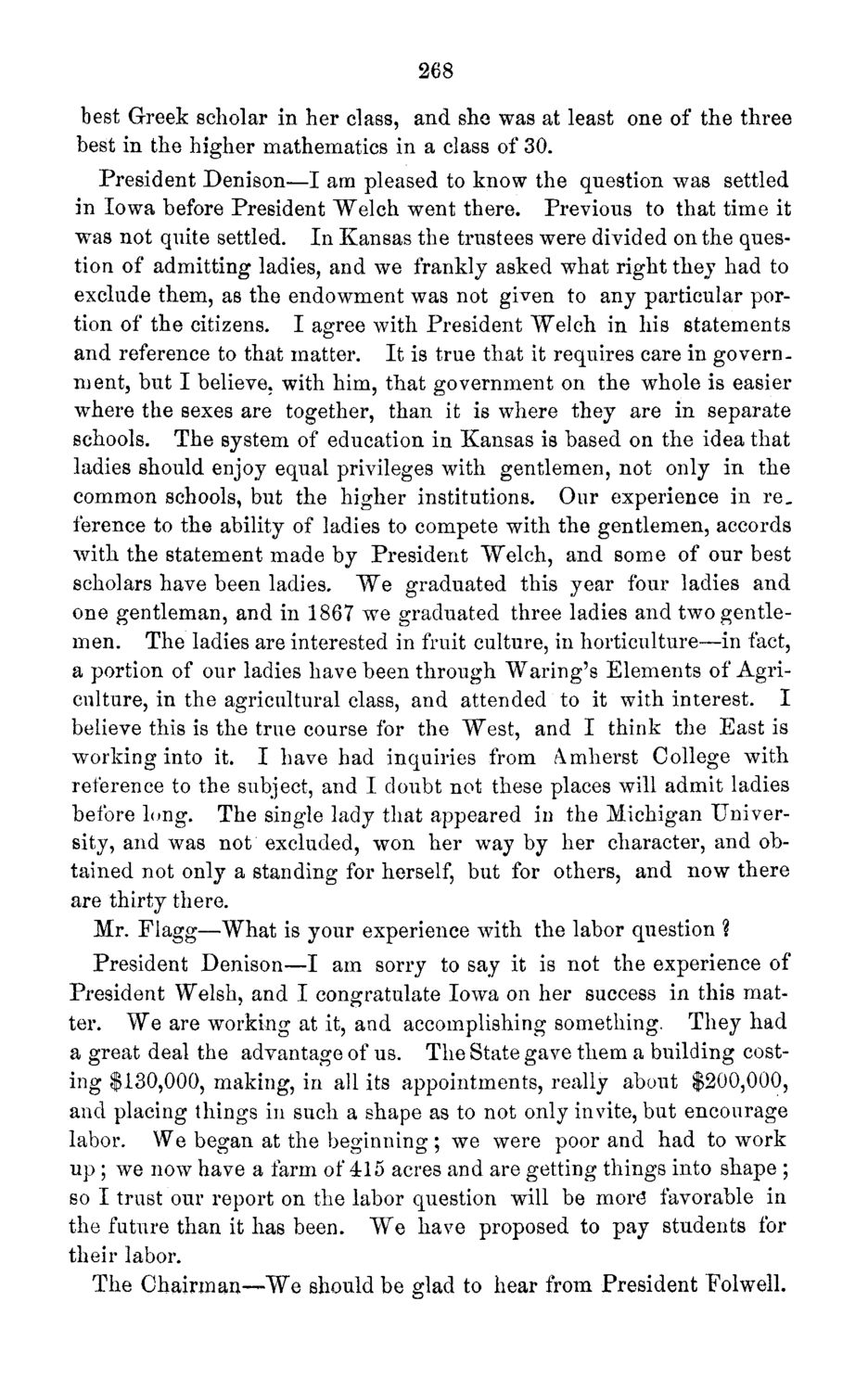| |
| |
Caption: Board of Trustees Minutes - 1871
This is a reduced-resolution page image for fast online browsing.

EXTRACTED TEXT FROM PAGE:
268 best Greek scholar in her class, and she was at least one of the three best in the higher mathematics in a class of 30. President Denison—I am pleased to know the question was settled in Iowa before President Welch went there. Previous to that time it was not quite settled. In Kansas the trustees were divided on the question of admitting ladies, and we frankly asked what right they had to exclude them, as the endowment was not given to any particular portion of the citizens. I agree with President Welch in his statements and reference to that matter. It is true that it requires care in government, but I believe, with him, that government on the whole is easier where the sexes are together, than it is where they are in separate schools. The system of education in Kansas is based on the idea that ladies should enjoy equal privileges with gentlemen, not only in the common schools, but the higher institutions. Our experience in r e . ference to the ability of ladies to compete with the gentlemen, accords with the statement made by President Welch, and some of our best scholars have been ladies. We graduated this year four ladies and one gentleman, and in 1867 we graduated three ladies and two gentlemen. The ladies are interested in fruit culture, in horticulture—in fact, a portion of our ladies have been through Waring's Elements of Agriculture, in the agricultural class, and attended to it with interest. I believe this is the true course for the West, and I think the East is working into it. I have had inquiries from Amherst College with reference to the subject, and I doubt not these places will admit ladies before long. The single lady that appeared in the Michigan University, and was not excluded, won her way by her character, and obtained not only a standing for herself, but for others, and now there are thirty there. Mr. Flagg—What is your experience with the labor question ? President Denison—I am sorry to say it is not the experience of President Welsh, and I congratulate Iowa on her success in this matter. We are working at it, and accomplishing something. They had a great deal the advantage of us. The State gave them a building costing $130,000, making, in all its appointments, really about $200,000, and placing things in such a shape as to not only invite, but encourage labor. We began at the beginning ; we were poor and had to work up ; we now have a farm of 415 acres and are getting things into shape ; so I trust our report on the labor question will be morg favorable in the future than it has been. We have proposed to pay students for their labor. The Chairman—We should be glad to hear from President Eolwell.
| |